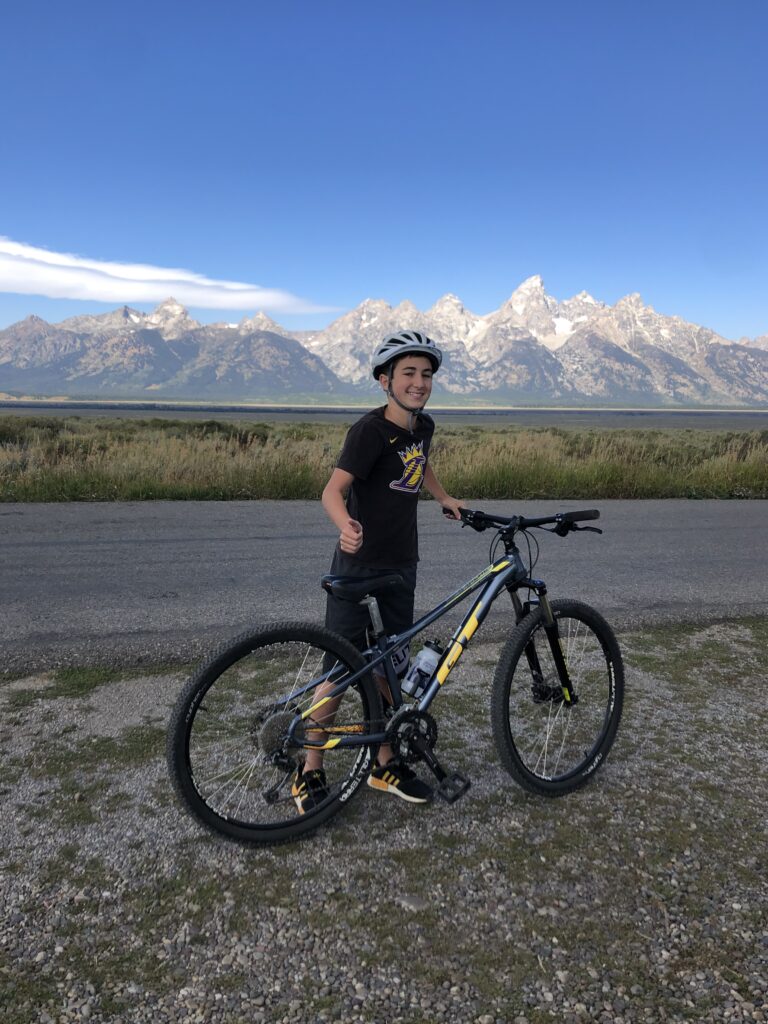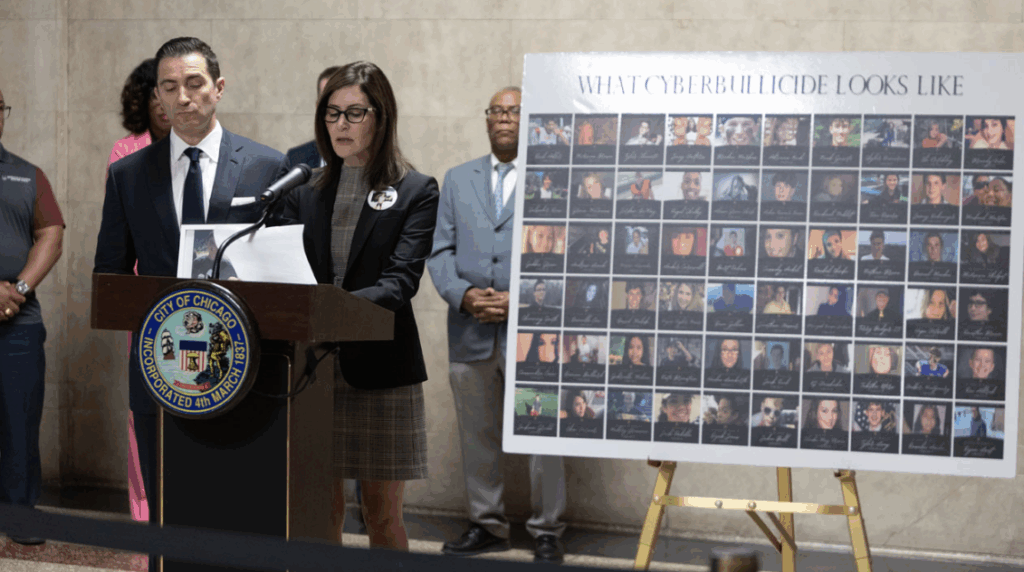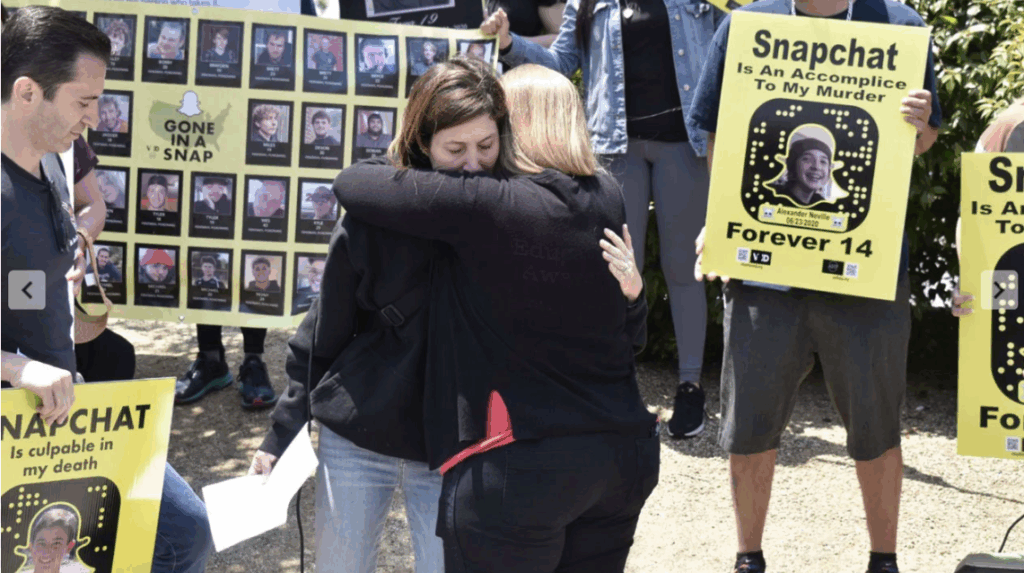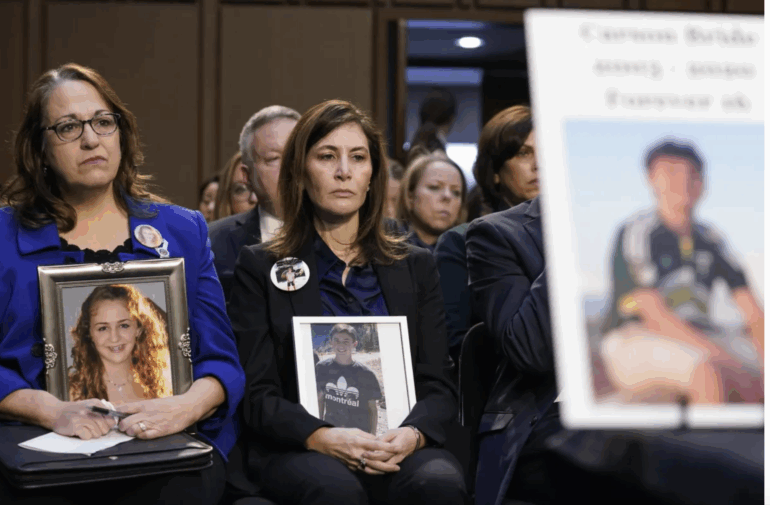Every October, schools, nonprofits, and communities wear orange ribbons and share hashtags for National Bullying Prevention Month. These gestures matter — they signal solidarity, compassion, and the importance of the issue. But awareness alone is not saving lives. The nation is past the point of slogans. Real change requires action.
The urgency could not be greater. Suicide is now the second leading cause of death among youth ages 10 to 19. Young adolescents who experienced cyberbullying were more than four times as likely to report suicidal thoughts and attempts as those who didn’t. Nearly half of U.S. teens say they’ve experienced some form of cyberbullying. These are not abstract statistics. They are warnings, and we are failing to act on them.
For my family, the statistics became heartbreakingly real. My son, Nate, was a vibrant, funny, sports-loving 15-year-old. He loved playing basketball. His family and friends deeply loved him.

While attending the Latin School of Chicago, classmates and basketball teammates viciously cyberbullied Nate. Nate did what the school directed students to do when targeted for bullying; he reported the cyberbullying to the school. But the Latin School failed to act, and his parents, my husband, and I were never informed. On January 13, 2022, Nate died by suicide.
In his memory, we launched Buckets Over Bullying, a nonprofit dedicated to preventing cyberbullying through education, advocacy, and legal action. This October, during another National Bullying Prevention Month, we must demand more than awareness. It must be a turning point.
From Performative Awareness to Practical Action
Bullying prevention cannot end at orange T-shirts, hashtags, or assemblies. Those things spark conversations, but children need to learn tangible action steps, parents need transparency, and schools need accountability.
At Buckets Over Bullying, we created a campaign that anyone — students, parents, or educators — can put into practice immediately: Screenshot it. Block it. Report it. These three steps provide a simple but powerful roadmap.
- Screenshot harmful messages to preserve evidence.
- Block the bully’s social media account to cut off the channel of abuse.
- Report the bullying to a trusted adult within your family and to the platform.
Holding States, Schools, and Social Platforms Accountable
Too many victimized families learn the hard way that schools often fail to act on cyberbullying reports, or worse, hide them from parents. Illinois’s Bullying Prevention Act requires schools to notify parents of cyberbullying reports within 24 hours. But one court has found that the law has no enforcement mechanism. If schools face no consequences for ignoring or minimizing cyberbullying reports, they are going to be inclined to do so, creating unnecessary danger for Illinois’ school children.

Illinois’ policymakers, and policymakers across the nation, must be called out and must do better. We are fighting for the appellate court to recognize a right of action to enforce the Bullying Prevention Act. Still, Illinois’ policymakers could easily implement modifications to erase any question a court might have about the right of enforcement, which is critical to child safety within Illinois schools. Parents have the right to know when their children are in danger, and schools must face consequences when they fail to protect them.
Tech companies must also be part of the solution. Social media platforms profit from keeping kids online as much as possible. These platforms fail to implement safeguards against cyberbullying, sextortion, the sale of illicit drugs, and dangerous content. They cannot continue to place profit over child safety, which is why federal bills such as the Kids Online Safety Act (KOSA) and Sammy’s Law must be signed into law.
As Marc Berkman, CEO of the Organization for Social Media Safety, has said: “Cyberbullying, along with other social media-related harms, is an urgent public health emergency impacting millions of children and causing serious short and long-term injury, including fatalities. Protecting our children requires all stakeholders, including parents, schools, technology companies, and policymakers, to take concrete steps to implement effective interventions. We know what needs to be done; now is the time for everyone to do their part.”
A Shared Responsibility
When a child is cyberbullied, families often feel isolated. But this crisis is not theirs alone to carry. It is a societal responsibility. Teachers and administrators cannot dismiss digital harassment as “not our problem” when it happens outside of school. Lawmakers cannot pass half-measures that lack accountability. And parents cannot afford to remain passive in the hope that someone else will step in.

The mental health impact is devastating. Studies show that 12- to 15-year-olds who spend more than three hours a day on social media face a significantly higher risk of depression and anxiety. Combine that with the reality that about one in six middle and high school students say they’ve been bullied online in the past year, and it becomes clear: we have raised a generation in digital environments that are dangerous by design.
A Call to Parents
The most powerful place to start is at home. Parents cannot wait for schools, policymakers, or tech giants to do the right thing. This October, I urge families to begin by adopting and modeling this three-step approach: Screenshot it. Block it. Report it. Talk about it at the dinner table. Practice it with your kids. Show them what it looks like. These are simple actions that could be life-saving interventions.
National Bullying Prevention Month should not be remembered for slogans or campaigns that raise awareness without changing outcomes. Remember it as the moment we moved from awareness to action, in honor of Nate and countless children who have died from cyberbullying and the failure of adults and schools to protect them.
How to Help
Buckets Over Bullying is a non-profit with a mission to eliminate cyberbullying of children and teens by advocating for accountability from students, schools, and social media platforms.
The sports-centric initiative is a call to action following the untimely death of Nate Bronstein, a 15-year-old Chicago student tragically lost to suicide on January 13, 2022, after being relentlessly cyberbullied by certain classmates and basketball teammates at the Latin School of Chicago through a JV Basketball group chat, Snapchat posts, and a separate Snapchat. Buckets Over Bullying seeks to prevent what happened to 15-year-old Nate and countless others by advocating for the accountability of cyberbullies, irresponsible and reckless adults, schools, and platforms.
Visit bucketsoverbullying.org and follow on Instagram and Facebook.

This post was submitted as part of our “You Said It” program.” Your voice, ideas, and engagement are important to help us accomplish our mission. We encourage you to share your ideas and efforts to make the world a better place by submitting a “You Said It.”

